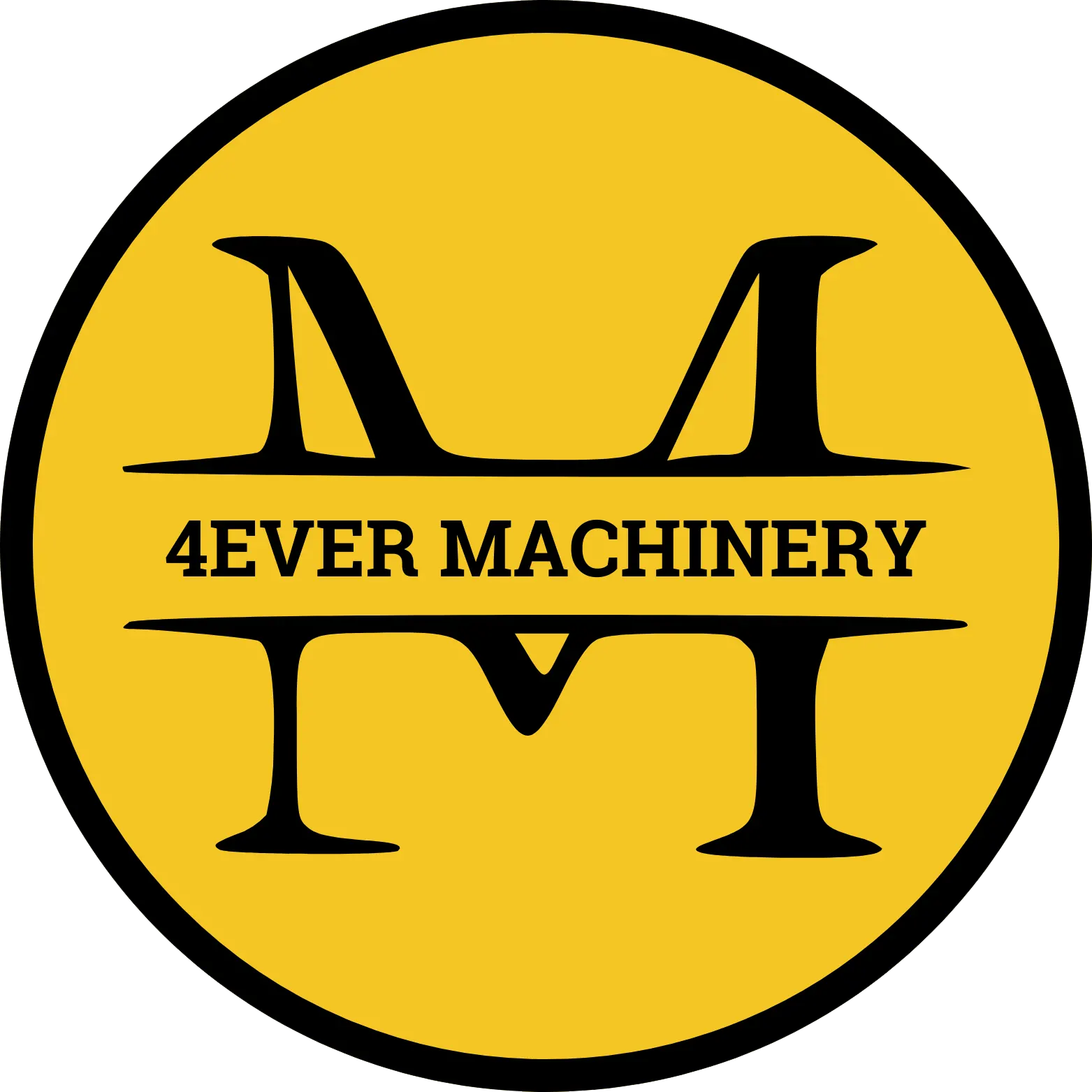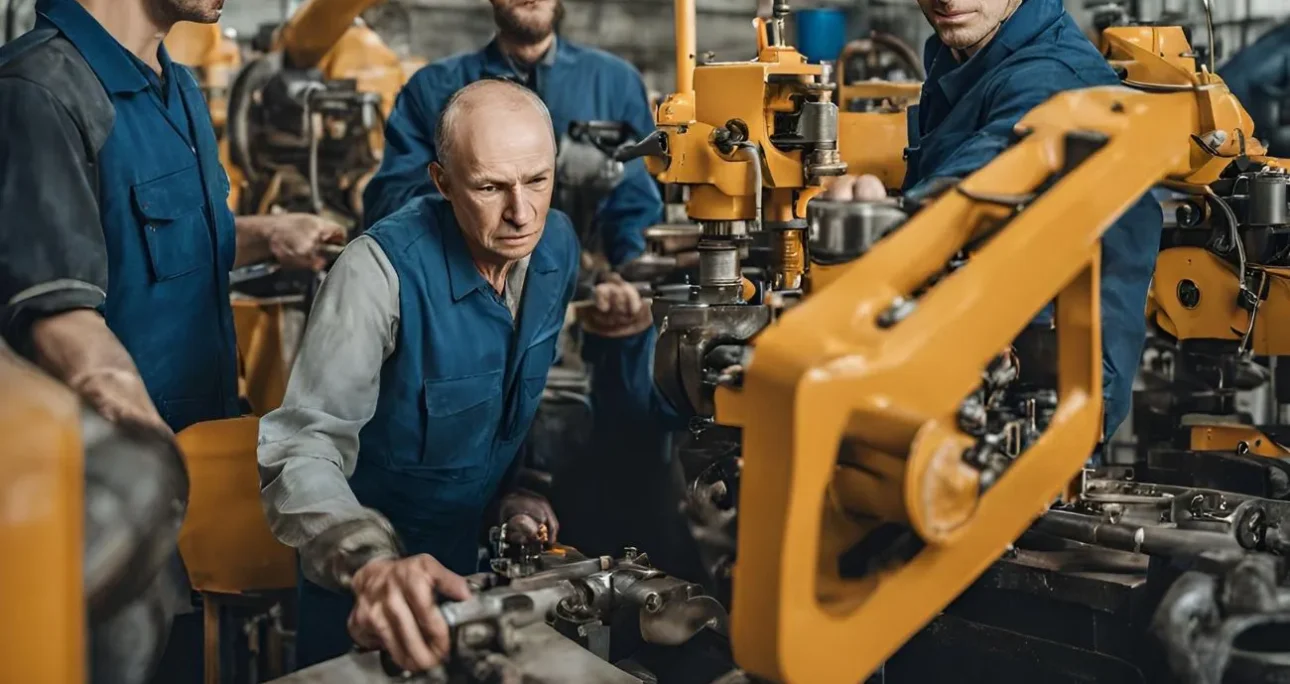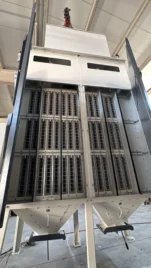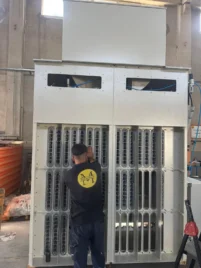In the rapidly evolving landscape of industrial manufacturing, niche industries often face unique challenges that standard machinery cannot address. These industries, ranging from specialized agriculture to advanced aerospace components, require equipment tailored to their specific production needs. Custom machinery offers a path to overcoming these challenges by optimizing production processes, enhancing product quality, and reducing operational costs. This article delves into the technical aspects of custom machinery and its role in elevating niche industries to new levels of efficiency and productivity.
Understanding Niche Industries and Their Challenges
Niche industries operate within specialized markets where specific, often high-value products are manufactured in smaller batches compared to mass production sectors. For example, industries producing precision medical devices, custom agricultural equipment, or defense-grade components must maintain tight tolerances and meet stringent regulatory standards. These industries often encounter challenges such as:
- Limited Production Scale: Unlike large-scale industries, niche manufacturers often operate with lower production volumes, requiring machinery that can be quickly adapted to new product lines or specifications.
- High Customization Requirements: Products in these sectors are frequently customized according to customer specifications, requiring flexibility in production lines.
- Stringent Quality Control: Niche industries often demand higher quality standards, with little room for error in tolerances and finishes.
- Diverse Material Handling: Working with specialized materials, such as composite alloys or biocompatible metals, requires machinery capable of precision handling and processing.
Standard machinery is often too generalized, resulting in inefficiencies, excessive downtime for adjustments, and higher operational costs. Custom machinery, however, can be designed to address these specific needs, providing an optimized solution that integrates seamlessly into niche production environments.
How Custom Machinery Improves Production Efficiency
Custom machinery can transform the production landscape for niche industries by addressing their unique requirements through the following mechanisms:
- Tailored Design for Process Integration
Custom machinery is designed to integrate directly into existing production processes, minimizing disruptions and allowing for smoother transitions between production phases. For instance, a custom CNC machine can be tailored to handle specific part geometries, reducing the need for multiple setups and intermediate operations. This leads to a reduction in cycle times and increased throughput, even in low-volume, high-mix production environments. - Enhanced Flexibility and Adaptability
In niche markets, the ability to switch between different product types or specifications is crucial. Custom machinery can be equipped with modular tooling systems, allowing manufacturers to change setups rapidly without significant downtime. Advanced control systems with programmable logic controllers (PLCs) enable the machinery to adapt to varying parameters, making it easier to accommodate changes in product dimensions or material properties without extensive manual reconfiguration. - Precision and Accuracy in Manufacturing
Many niche industries require extremely tight tolerances, often beyond the capabilities of off-the-shelf machinery. Custom machinery is built with precision in mind, incorporating features like high-resolution encoders, advanced servo motors, and feedback systems that maintain accuracy during high-speed operations. For example, in the production of aerospace components, where even a few microns can make a difference, custom machining centers ensure that parts meet exact specifications, reducing the need for costly rework. - Integration of Advanced Technologies
Custom machinery allows for the integration of cutting-edge technologies such as automation, artificial intelligence (AI), and Internet of Things (IoT). These technologies enable predictive maintenance, real-time process monitoring, and adaptive control, ensuring optimal machine performance. Automation, for example, can reduce the dependency on manual labor, enhancing consistency in output while lowering labor costs. In addition, IoT-enabled custom machines can communicate with other equipment, allowing for a seamless flow of information across the production line and better decision-making through data analytics. - Reduced Waste and Material Efficiency
Custom machinery can be designed to minimize material waste, which is especially important in niche industries where raw materials may be costly or difficult to source. By optimizing cutting paths, reducing tool wear, and implementing automated material handling systems, custom equipment ensures that each unit of raw material is utilized effectively. This not only reduces material costs but also aligns with sustainable manufacturing practices by minimizing scrap and rework.
Real-World Applications: Custom Machinery in Action
The benefits of custom machinery can be illustrated through several real-world applications:
- Precision Agriculture Equipment: A company specializing in high-value crops may require custom harvesting machinery designed to handle delicate produce without causing damage. By integrating gentle handling mechanisms and sensor-based sorting technologies, custom harvesters can optimize the yield while preserving product quality.
- Medical Device Manufacturing: For the production of custom implants or prosthetics, a high degree of precision is required. Custom CNC machines designed to work with biocompatible materials like titanium or PEEK can produce implants with complex geometries while maintaining strict quality standards, ensuring compliance with medical regulations.
- Defense Components Production: The defense industry often requires small batches of highly specialized components. Custom machining centers equipped with multi-axis capabilities can produce complex parts for aerospace or military vehicles with consistent precision, meeting the stringent demands of military specifications.
Cost-Benefit Analysis: Investment in Custom Machinery
One of the primary considerations for manufacturers is the initial investment cost of custom machinery. However, this investment often pays for itself through long-term benefits, including:
- Increased Throughput: Faster cycle times and reduced setup durations result in higher production capacity, allowing manufacturers to meet demand more efficiently.
- Lower Operating Costs: Custom machinery minimizes labor costs through automation and reduces energy consumption by optimizing power use during operations.
- Extended Machine Lifespan: Machines that are built specifically for a task experience less wear and tear, extending their service life and reducing the frequency of replacements.
Conclusion: A Strategic Advantage for Niche Manufacturers
Custom machinery offers niche industries a strategic advantage by aligning production capabilities with specific needs, leading to higher productivity, reduced waste, and improved product quality. As the demand for specialized products grows, the ability to deliver tailored solutions efficiently and consistently becomes a competitive differentiator. By investing in custom machinery, niche manufacturers can adapt more quickly to market changes, meet their clients’ unique needs, and maintain a leading position in their respective industries.
4Ever Machinery, with its expertise in custom machinery design and manufacturing, is committed to helping niche industries unlock their full production potential. Through collaborative partnerships, we ensure that each custom machine meets the precise requirements of our clients, delivering solutions that drive success in even the most demanding industrial applications.



